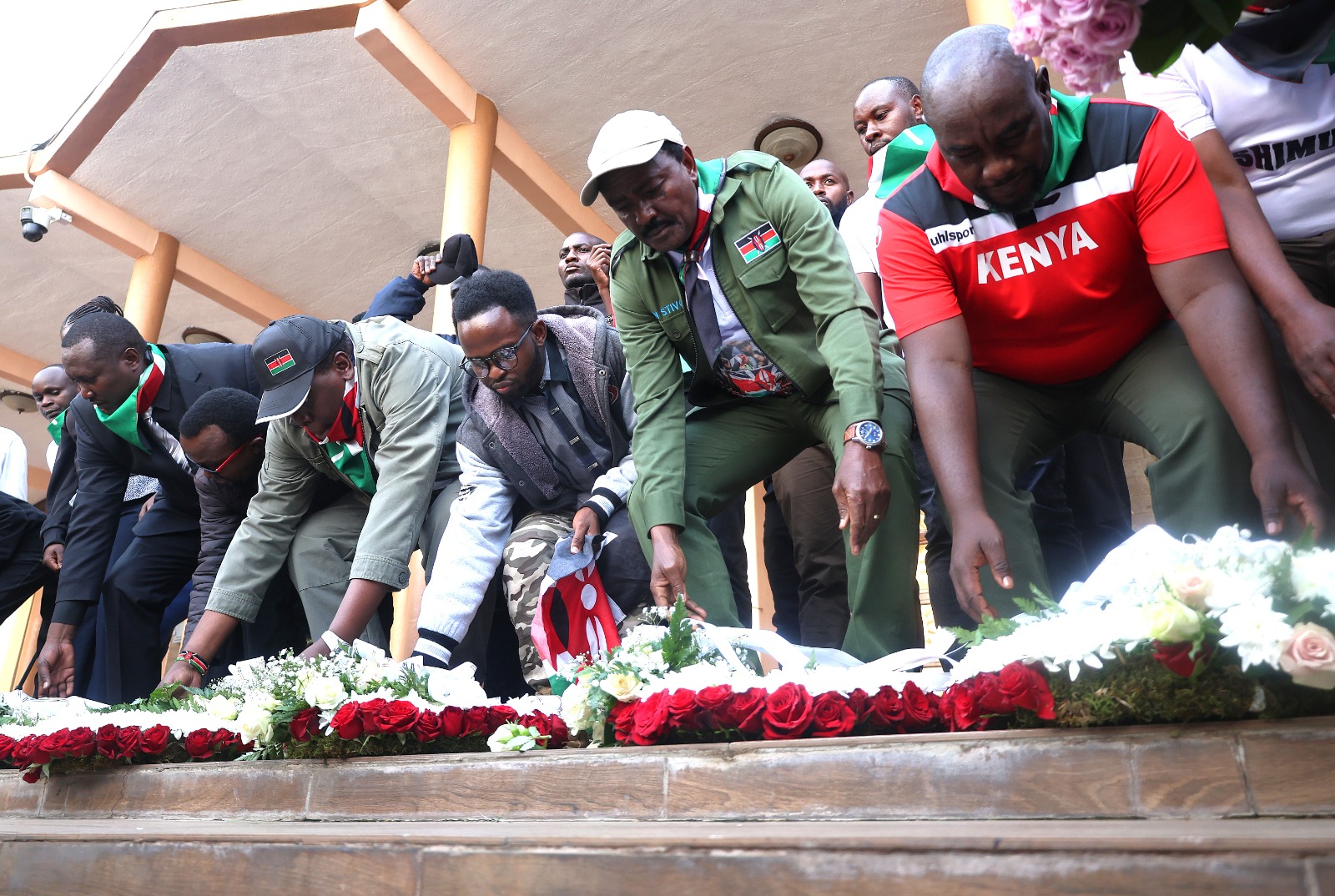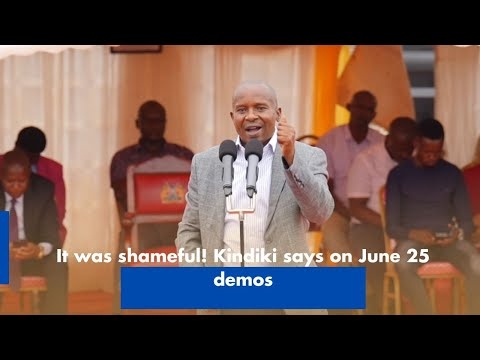
 Wiper leader Kalonzo Musyoka and DAP-K party leader Eugene Wamalwa lay wreathes at All Sainst Cathedral in remembrance of June 25, 2024 anti-government protest victims, June 25, 2025. /KALONZO MUSYOKA/X
Wiper leader Kalonzo Musyoka and DAP-K party leader Eugene Wamalwa lay wreathes at All Sainst Cathedral in remembrance of June 25, 2024 anti-government protest victims, June 25, 2025. /KALONZO MUSYOKA/X
Opposition leaders have come out strongly against the Communications Authority of Kenya’s (CA) directive banning live coverage of ongoing demonstrations, insisting that the move is an attack on democracy and the right to information.
Democratic Party (DP) leader Justin Muturi led the condemnation, stating, “You can’t silence people’s voices by switching off the cameras. The right to be informed is fundamental, especially at a time when Kenyans are demanding accountability from their leaders.”
Wiper party leader Kalonzo Musyoka questioned the motive behind the ban, emphasising that media stations are “basically sharing information”.
“You cannot stop content. We therefore come strongly against this and we hope the court will act expeditiously and stop this. What are you afraid of? Even if you shut down media stations, what about those with phones? The horse has left the stable.”
The CA, in a letter dated June 25, directed all television and radio stations to immediately cease live coverage of the nationwide protests, citing alleged violations of Articles 33(2) and 34(1) of the Constitution and Section 461 of the Kenya Information and Communications Act, 1998.
The Authority warned that failure to comply would result in regulatory action.
DAP-K party leader Eugene Wamalwa read a sinister motive behind the directive, suggesting it could be a cover for the government to unleash violence on peaceful protesters.
“The scripture says in John 3:20 that evil lurks in darkness. There’s a reason the government wants blackout and Kenyans are following what’s happening across the country. People have come out from every corner of Kenya to reject this system,” Wamalwa said.
“When you look at what’s happening, I suspect they want to unleash the military on the citizens. As we speak, we are aware the military is positioned at Nyayo stadium.”
Muturi criticised the directive as a blatant attempt to stifle transparency and shield the government from public scrutiny.
“Live coverage is not just about broadcasting images; it is about ensuring that Kenyans everywhere have access to the truth as events unfold. Attempts to block this are not only unconstitutional but also undermine the very fabric of our democracy,” he said.
The CA’s move has sparked widespread outrage among civil society groups, legal experts, and the general public, who argue that the directive is reminiscent of past attempts to muzzle the press and restrict civic space.
Many have pointed to previous court rulings affirming the media’s right to cover public demonstrations and the public’s right to information.
Their remarks come on the backdrop of a threat by the Law Society of Kenya (LSK) and a consortium of civil society groups to sue the Communications Authority if it does not withdraw the directive by 4pm.
As protests continue across major cities, opposition leaders have vowed to resist any efforts to curtail media freedom and have called on Kenyans to remain vigilant in defending their constitutional rights.












